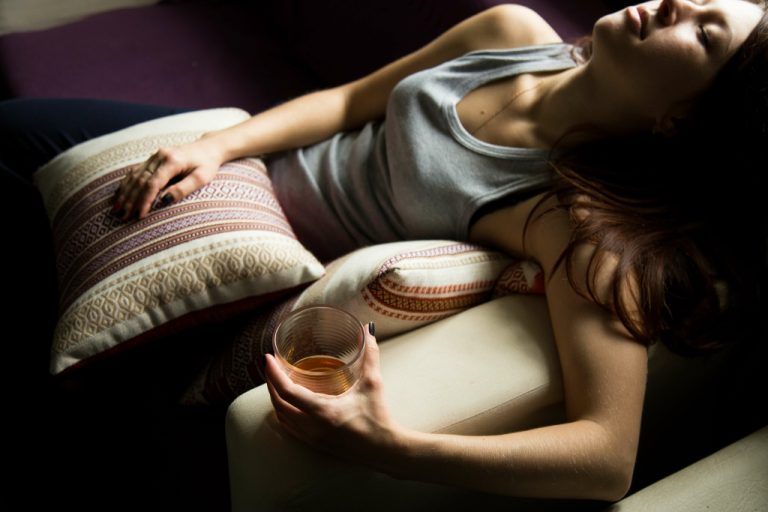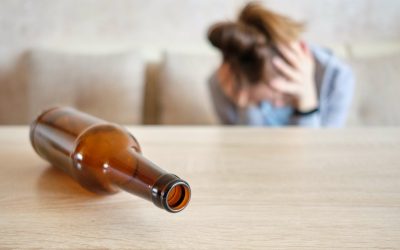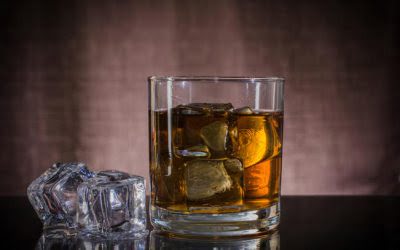Alcohol withdrawal: MedlinePlus Medical Encyclopedia
In support of improving patient care, CME/CE activities offered have been planned and implemented by the Postgraduate Institute for Medicine and NIAAA. We invite healthcare professionals to complete a post-test to earn FREE continuing education credit (CME/CE or ABIM MOC). This continuing education opportunity is jointly provided by the Postgraduate Institute for Medicine and NIAAA. It can cause memory loss and interference with brain development. For college students, being dry is the best thing to do,” he said. However, if you’re banking on a month-long break from alcohol to help you lose weight, Kumar said it’s not your best bet.
- URAC’s accreditation program is an independent audit to verify that A.D.A.M. follows rigorous standards of quality and accountability.
- All this is to say that “just quitting” isn’t always easy, even when alcohol use harms your sleep and well-being.
- Withdrawal symptoms are a whole different world than alcohol-induced sleep problems.
- You may have changes in breathing or move around a lot during sleep.
- If you’ve enjoyed a lovely three-course dinner with friends — washed down with a few glasses of wine — then it’s the combination of a substantial meal and the alcohol that’ll affect your sleep.
- Consuming a sufficient amount of fluids in beverages and water-filled foods (such as fruits, vegetables, and soup) will help you maintain your energy.
Natural Ways to Get Better Sleep
The sleep disruptions that tend to occur in the second alcoholism symptoms half of the night after you’ve been drinking could make it difficult to enter and maintain stage 3 sleep, so you’re unlikely to feel refreshed in the morning. Alcohol relaxes muscles, which can negatively affect your airway. This can lead to increased snoring and, in more severe cases, obstructive sleep apnea (OSA).
How common are hangovers?

Treatment for one of these underlying conditions may be needed for insomnia to get better. Also, treating insomnia may help depression symptoms improve faster. Alcohol use and taking opioids or sedative hypnotics, such as sleep and anti-anxiety medications, can increase your risk of an overdose. Examples of these medications include sleep aids, such as zolpidem and eszopiclone, and benzodiazepines, https://digitaliskw.com/understanding-the-dangers-of-alcohol-overdose/ such as diazepam and alprazolam. Even drinking alcohol while taking over-the-counter antihistamines can be dangerous. When patients have sleep-related concerns such as insomnia, early morning awakening, or fatigue, it is wise to screen them for heavy alcohol use and assess for AUD as needed.
Lifestyle Quizzes
Alcohol dependence can make it harder to think or remember things. Over time, heavy drinking can cloud your perception of distances and volumes, or slow and impair your motor skills. It can even make it harder for you to read other people’s emotions. But if you quit, your brain seems to be able to regain some of these abilities.
- One or both mechanisms may be weakened or abnormal in insomnia.
- Additionally, having a heavy, fatty meal later at night may affect your ability to fall asleep.
- However, alcohol can interrupt healthy sleep patterns by disrupting sleep stages and leading to insomnia.
- So why does alcohol have such a negative impact on sleep apnea?
- Even just one bout of drinking too much may weaken your body’s germ-fighting power for up to 24 hours.
For more information, visit Alcohol’s Effects on Health.
Chronically high levels of these hormones, especially before sleep, can make it hard for your body to relax. If you do fall asleep, you may wake up during the night with stressful or worrisome thoughts and not be able to fall back asleep. You may be scared about not falling asleep or not being able to stay asleep. Some people also have a distinct phobia, or fear, about sleep called somniphobia. They may think something bad will happen to them while they sleep or that they shouldn’t sleep because they need to stay alert and watchful. If you’re having trouble falling or staying asleep often, see your healthcare provider.
Extended Recovery Period (1-3 Months)
In this study, one of the subjects had nightmares of hallucinatory intensity during alcohol withdrawal and with 100% Stage 1-REM sleep. As DTs ended, recovery sleep set in as a response to sleep deprivation in most of these patients. However, a subset of patients may have fragmented sleep and disturbances of consciousness that predict a guarded prognosis for future episodes of DTs (Kotorii et al., 1982, Nakazawa et al., 1981). In summary, moderate doses of alcohol may decrease the amount of REM sleep through the night. In doses mimicking heavy drinking, alcohol may initially improve sleep continuity during the first half of the night.
In brief, this model posits that sleep is a function of two independent mechanisms, namely homeostatic sleep drive and circadian rhythmicity. One or both mechanisms may be weakened or abnormal in insomnia. A mismatch between the normally synergistic circadian and homeostatic mechanisms may also lead to circadian rhythm sleep disorders. Dr. Abhinav Singh, board certified in Sleep Medicine and Internal Medicine, is the Medical Director of the Indiana Sleep Center, which is accredited by the American Academy of Sleep Medicine. He is also a Clinical Assistant Professor at Marian University College of Medicine in Indianapolis, where he developed and teaches a Sleep Medicine rotation.Dr. Singh’s research and clinical practice focuses on sleep disorders, including excessive daytime sleepiness, narcolepsy, sleep apnea, chronic snoring, insomnia, and sleep education.

Alcohol affects sleep – here’s how
Trust me, that’s not the kind of heart-pounding night you’re looking for. When you consume alcohol before bedtime, REM sleep typically pays the price. Join our Sleep Care Community — a trusted hub of sleep health professionals, product specialists, and people just like you. Whether you need expert sleep advice for your insomnia or you’re searching for the perfect mattress, we’ve got you covered.

Here’s Why You Get Sleepy After Eating
Treatment is brief and time-limited and typically lasts around insomnia after stopping drinking four to eight sessions. Research suggests that anxiety can affect rapid eye movement (REM) sleep. This is the phase of sleep when you tend to have vivid dreams. If you have anxiety, the dreams may be disturbing or turn into nightmares that wake you. Alcohol has been linked to reduced rapid eye movement (REM) sleep. Research shows that alcohol actually has a disruptive effect on your sleep the rest of the night and messes with sleep quality and quantity.
